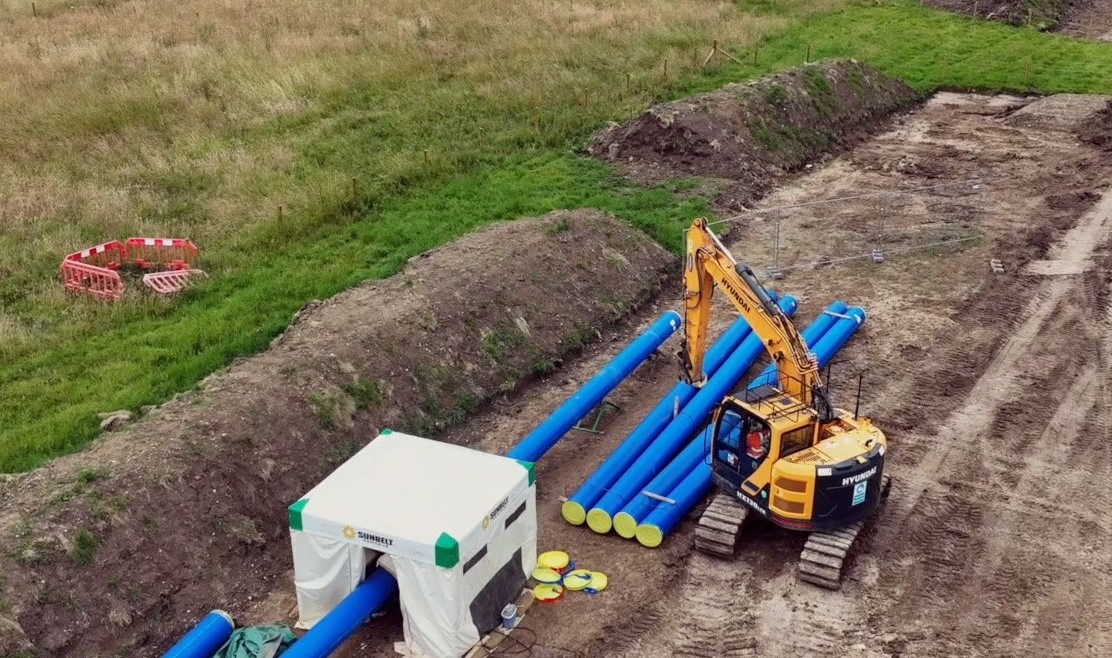Major Milestone: Guildford’s new water pipeline passes halfway mark as part of Thames Water’s £93.1m network boost

Thames Water has laid over half of its new water transfer pipeline
- Thames Water has laid over half of a new transfer pipe connecting west Guildford’s water supply to the east
- The £46m water transfer pipeline will keep taps flowing for 9,000 homes in Cranleigh and the surrounding areas
- Further investment includes upgrades to the water treatment process at the company’s Shalford, Netley Mill, Ladymead and Mousehill water treatment sites
The UK’s largest water company has confirmed that over half of Guildford's new water transfer pipe is in place, with 5.8km installed to date. In total the company is laying circa 9km between Pewley Reservoir in west Guildford to Netley Mill water treatment works in east Guildford.
The pipeline will help to keep the taps flowing for local people whose water is currently only supplied from Netley Mill water treatment works, including customers living in Cranleigh and the surrounding villages. The new pipeline will now create an additional source of water supply to residents in these areas.
The project is on track to complete in time for winter 2025 and will transfer up to 14 megalitres of water per day, equivalent to almost six Olympic swimming pools.
As construction progresses, work will begin to lay pipe at Pewley Hill and Pewley Downs between the villages of Albury and Shere. Access will be maintained for local people, dog walkers, runners and those wishing to visit Pewley Downs throughout the works.
From Monday 4 November 2024 a road closure will be in place on Guildford Lane so engineers can continue to lay further pipework. It’s expected the closure will remain for around two weeks, during which time a diversion will be in place. Details can be found on Thames Waters website.
Paul Wetton, Thames Water’s Strategic Programme Director for Water said: “We’ve made significant progress to improve resilience and reliability to water supply across the Guildford area, carrying out a series of upgrades to our water treatment sites and laying over half of our new water transfer pipeline between east and west.
“The Guildford area currently operates as an ‘island’ water supply zone and the new pipeline is particularly important in helping prevent future supply interruptions across the local area. Once complete it will create a back-up source of water for our Cranleigh customers and those in surrounding villages.”
Rt Hon Jeremy Hunt, MP for Godalming and Ash recently visited the site in Shere to see the pipeline progress first hand and find out more about how the works will benefit his constituents.
Commenting on the project he said: “It’s encouraging to see Thames Water make much needed progress to improve the reliability of local water supply. The investment is long overdue and essential for our community’s future water security. My constituents have endured significant disruption from past water outages, and while I welcome these improvements, I will stay in close contact with the company to make sure they fulfil all their commitments to our area."
Galliford Try is carrying out the pipeline works on behalf of Thames Water and have been working carefully to protect the local environment and habitats along the route.
Thames Water has also made significant progress to several multi-million-pound upgrades as part of its wider major water network overhaul across the Guildford area. At the company’s Shalford site, work is well underway to improve the reliability of the water treatment process, while investment at Mousehill water treatment works will increase the amount of water available.
In addition, the company has installed a new power generator at its Ladymead site, along with control monitors at several of its booster sites. This will minimise the effect of power surges that had previously caused sites to trip, reducing the risk of supply interruptions.
Further water treatment upgrades are also taking place at Ladymead, Netley Mill and Mousehill water treatment works, which will also build further resilience across the local area.
